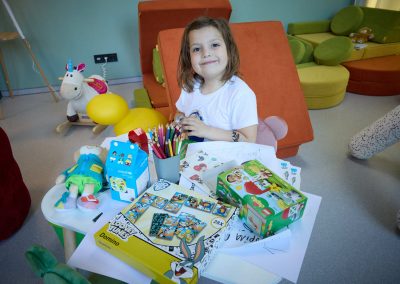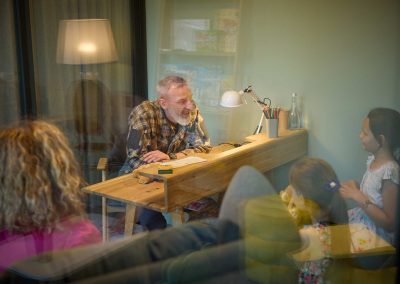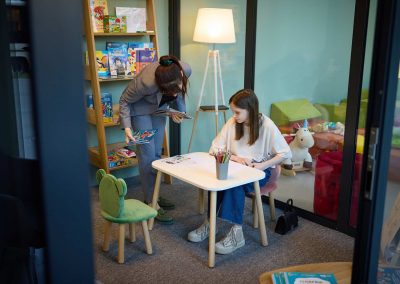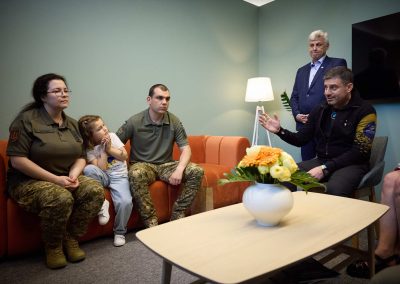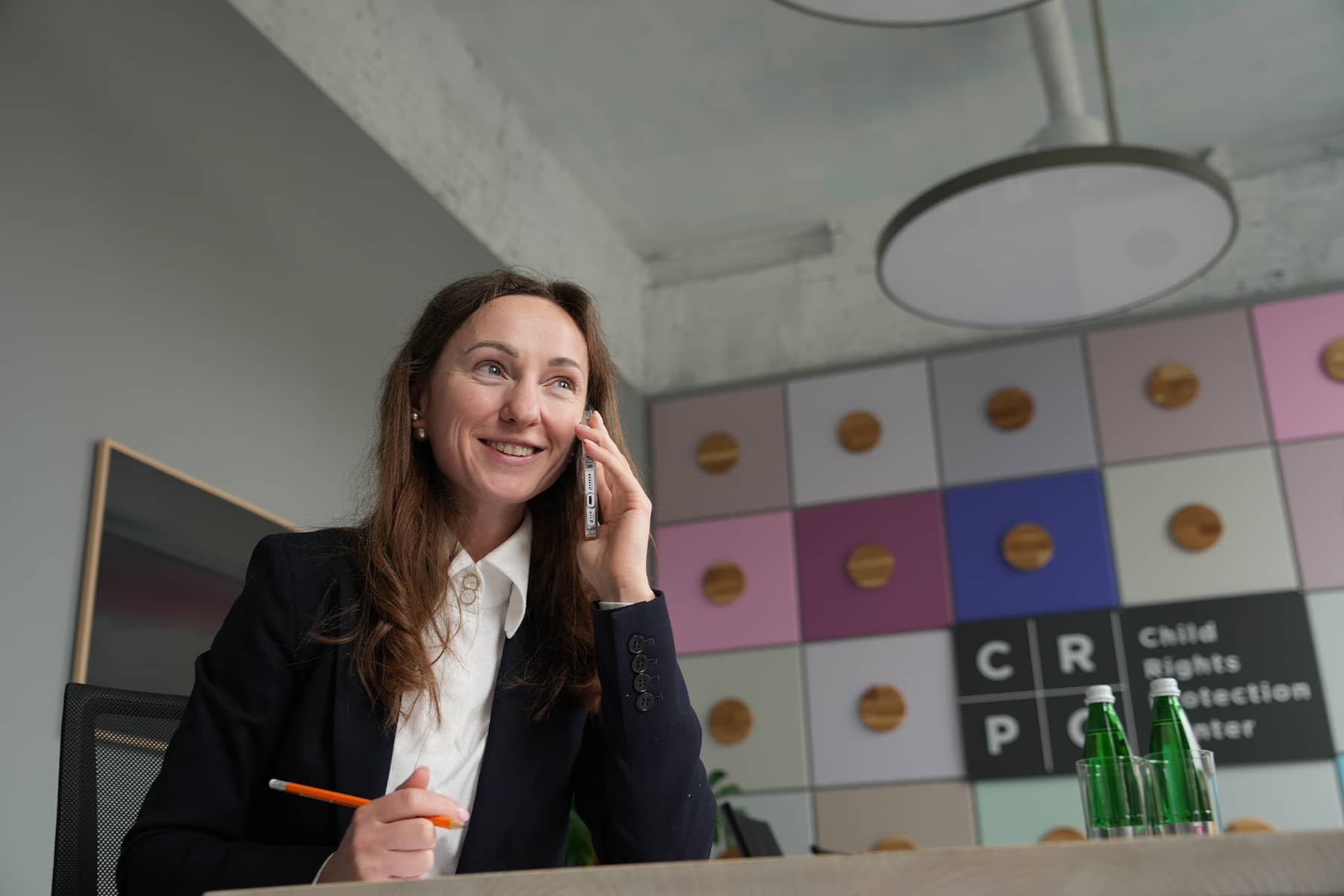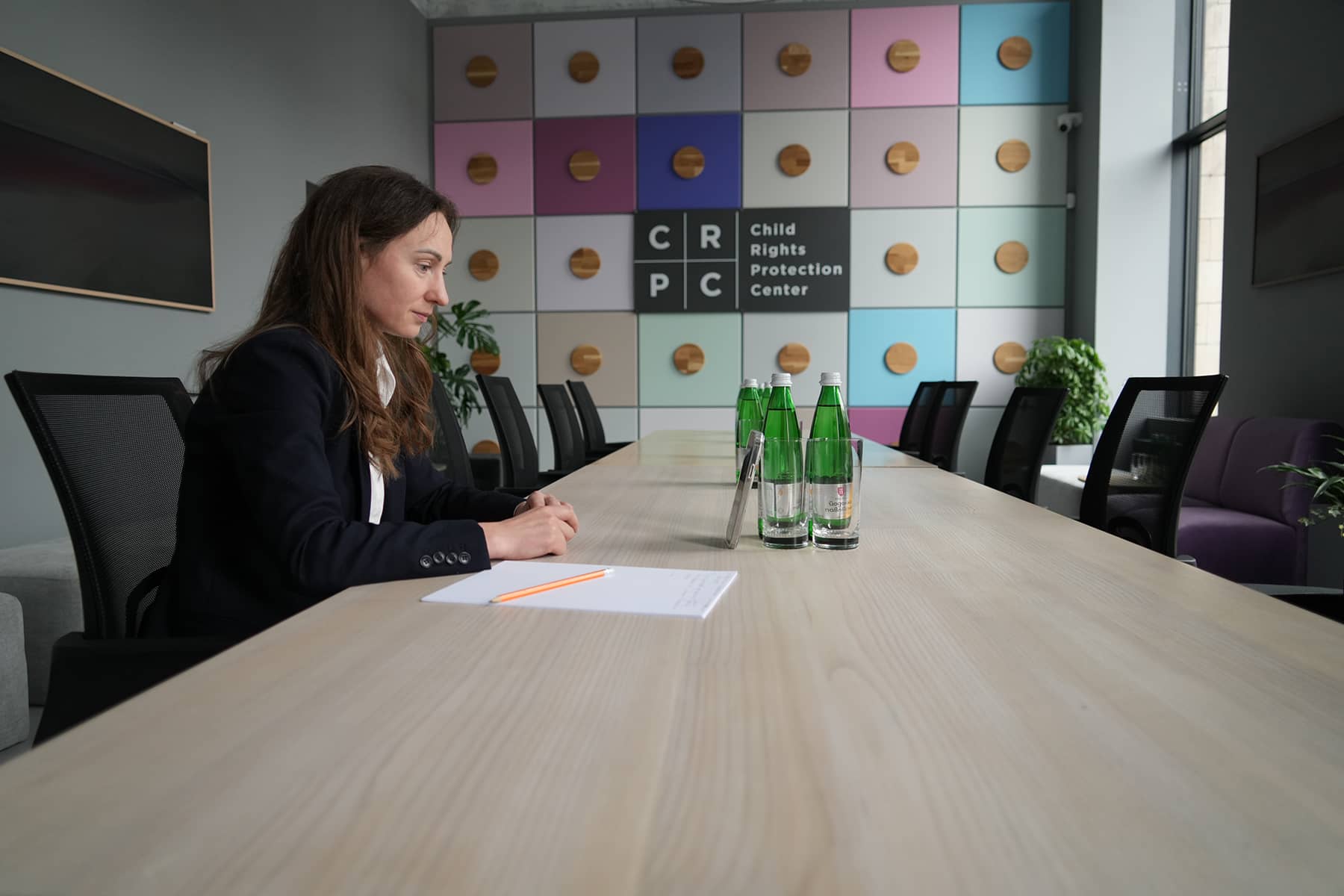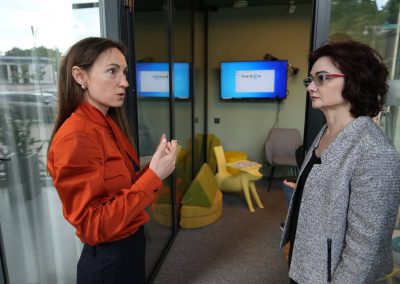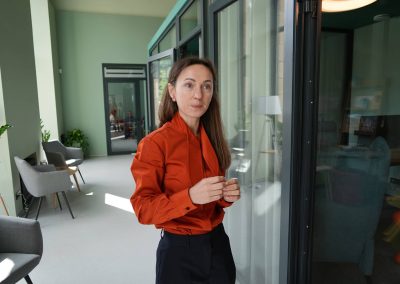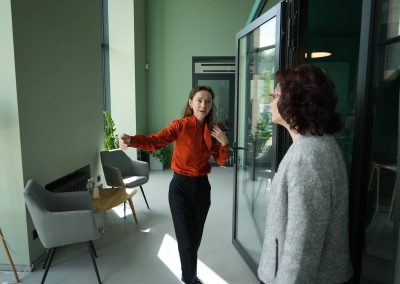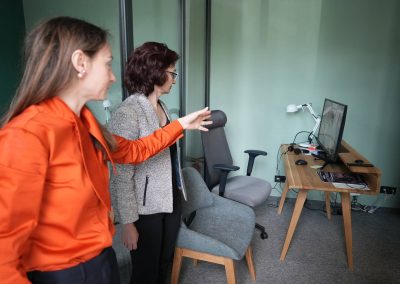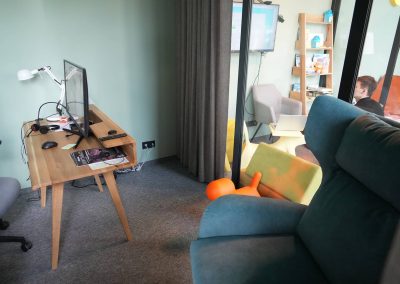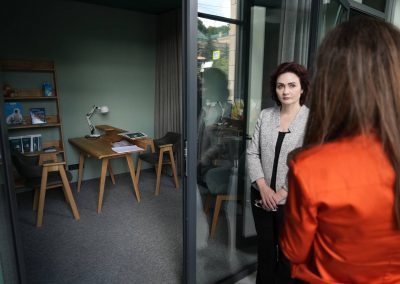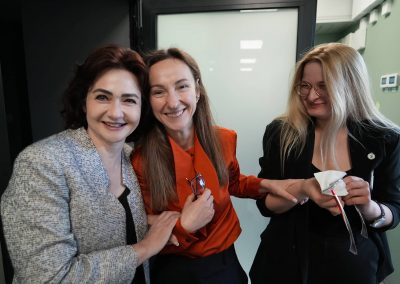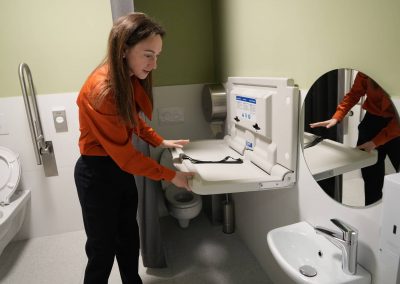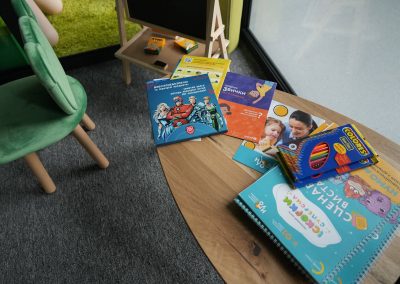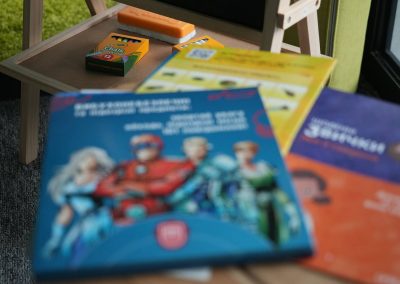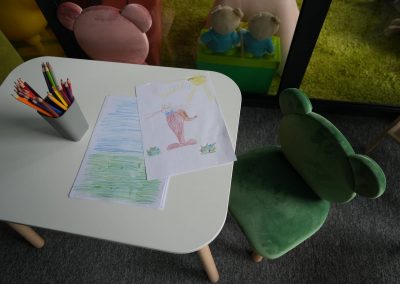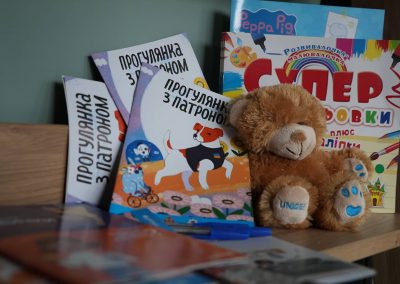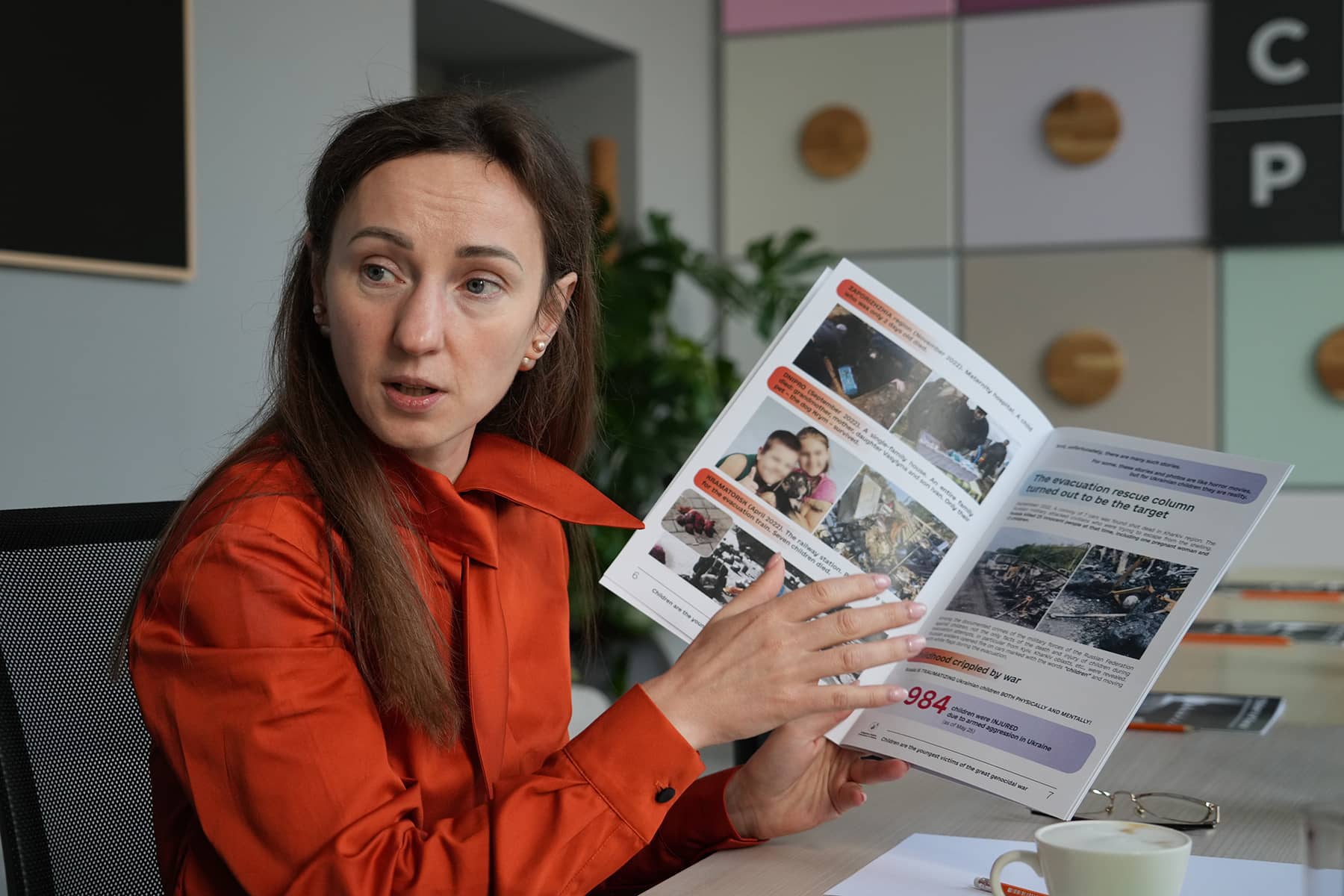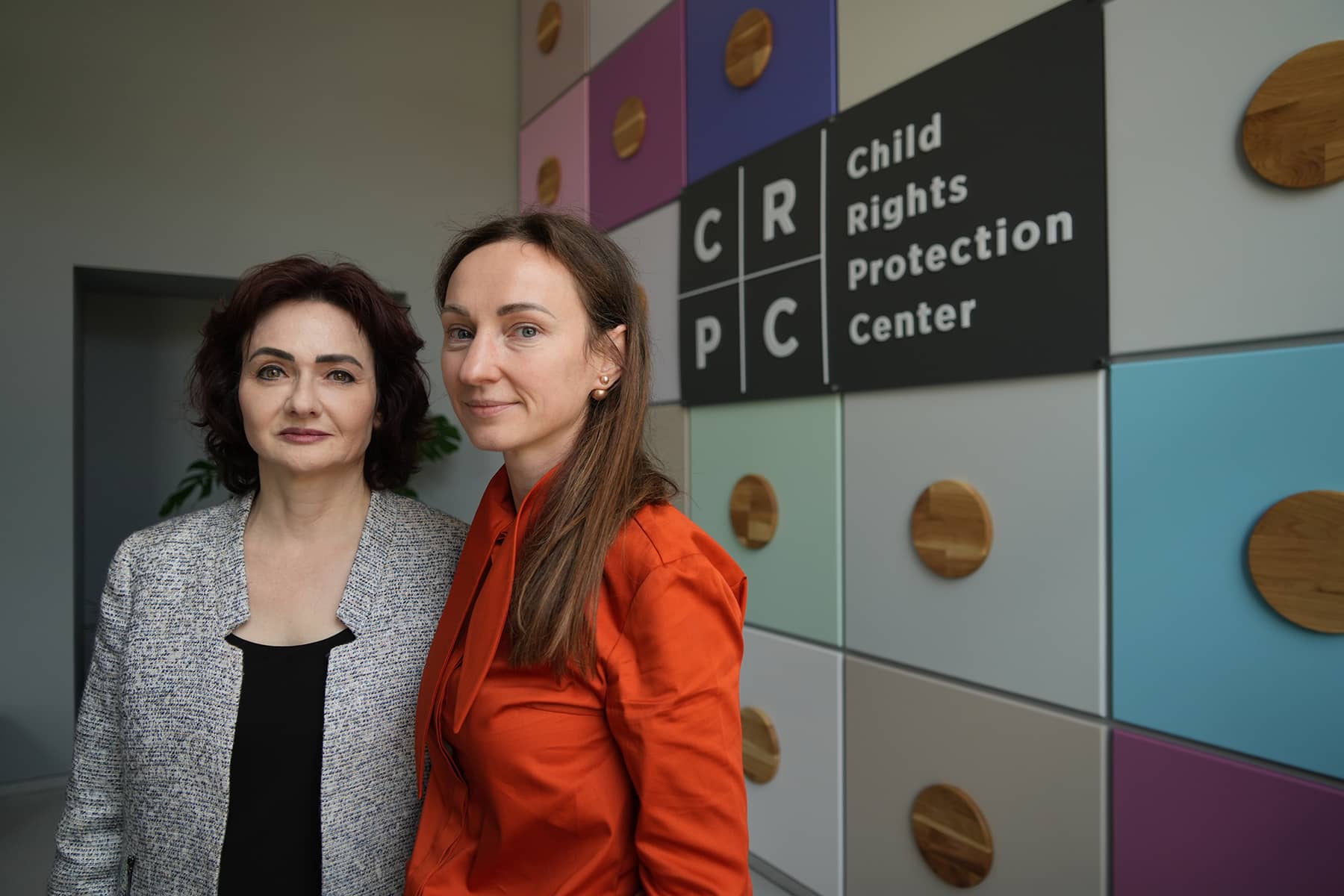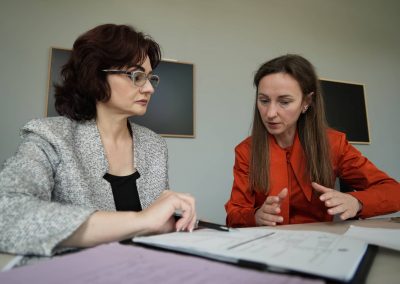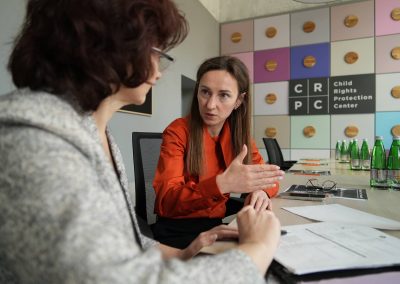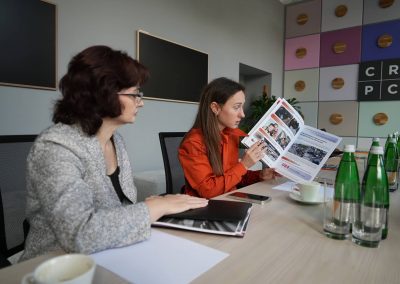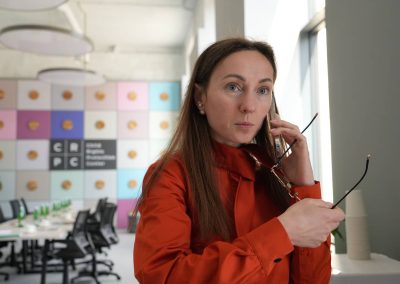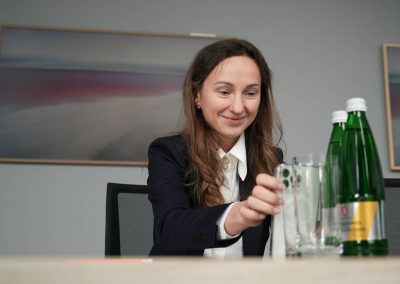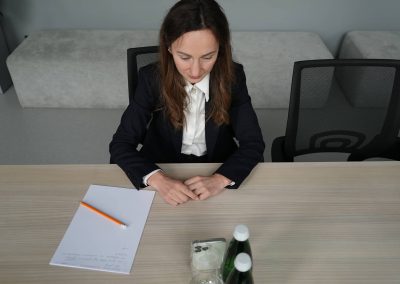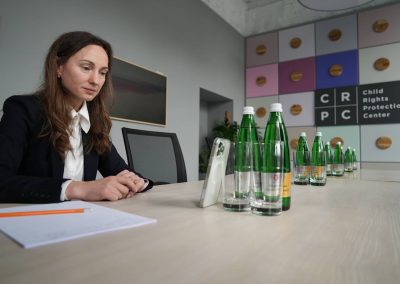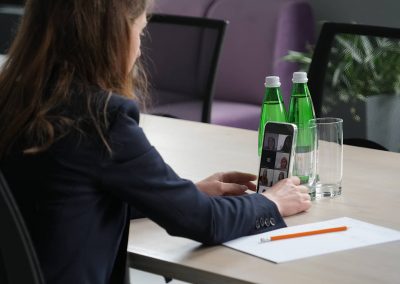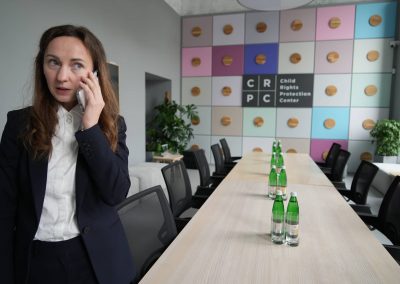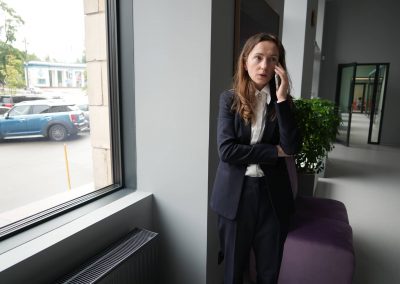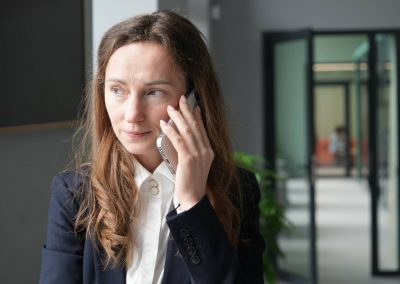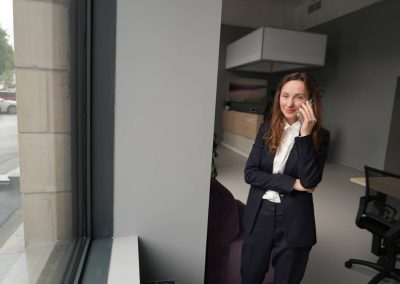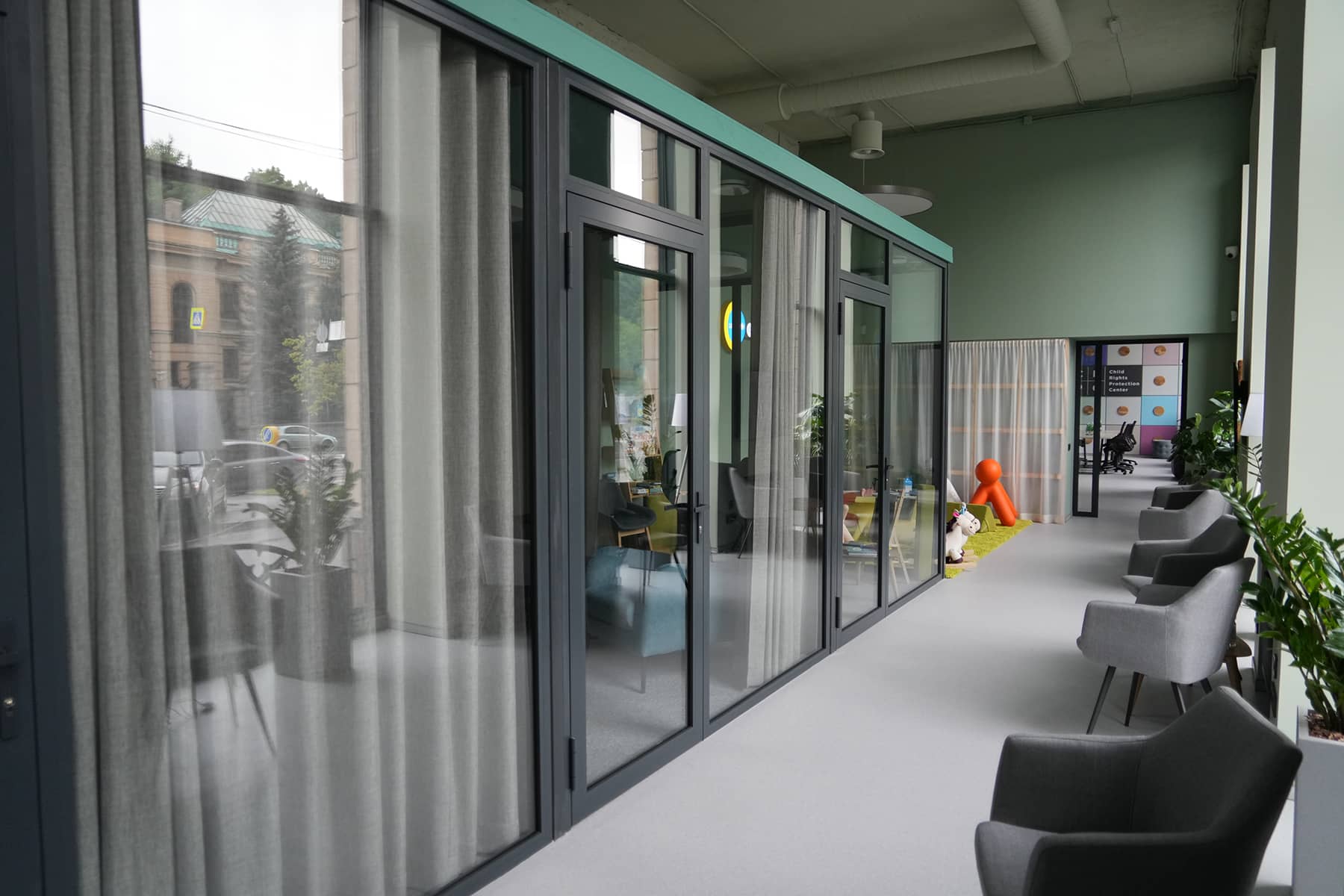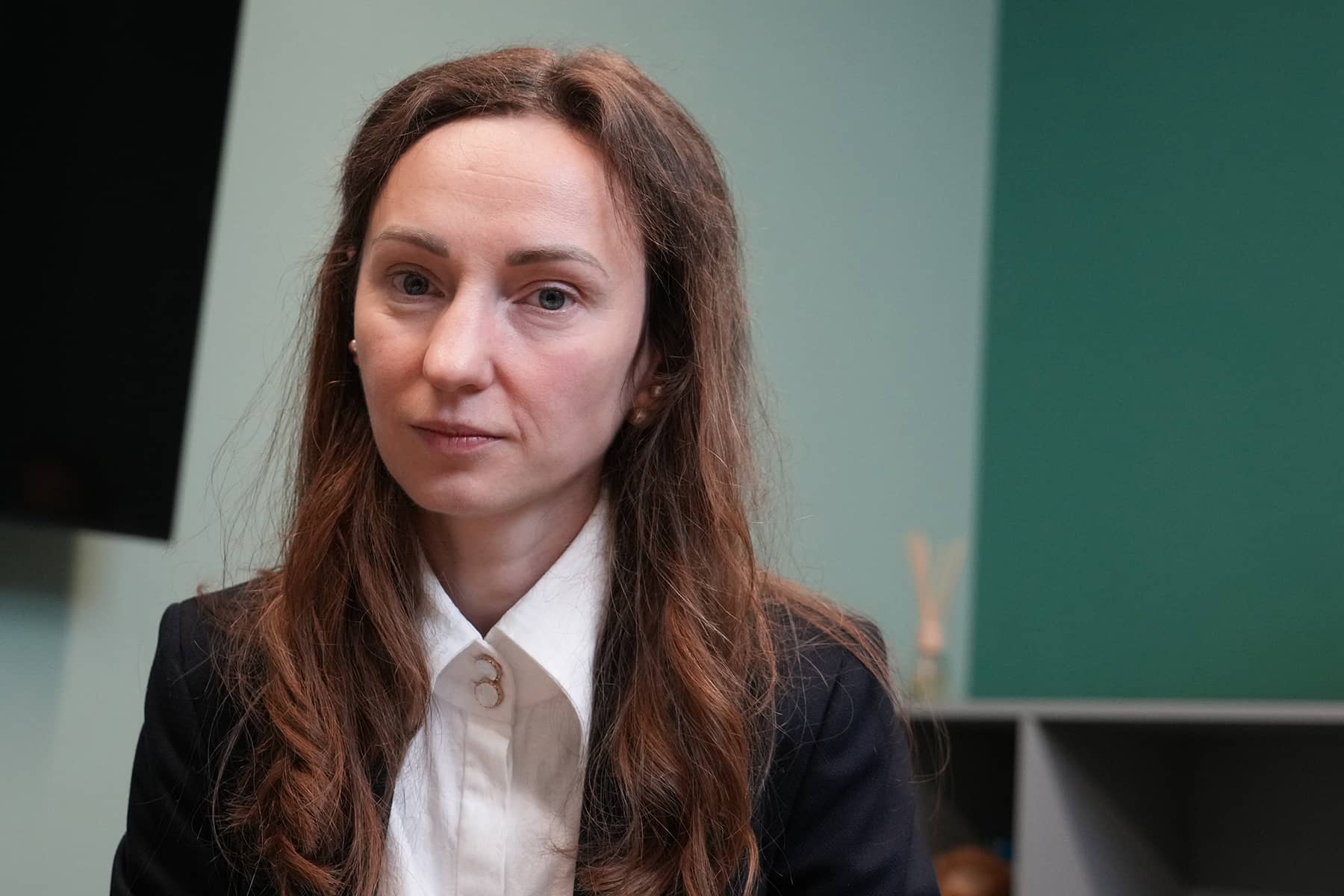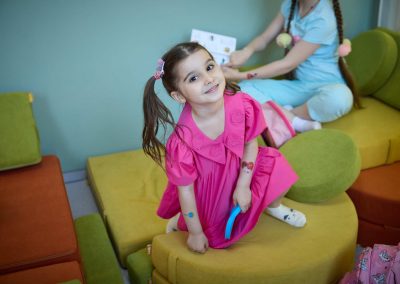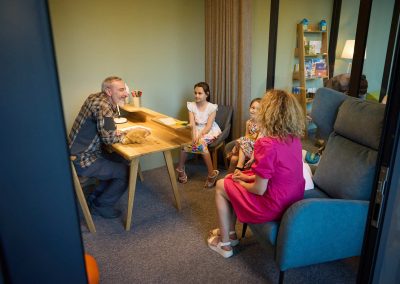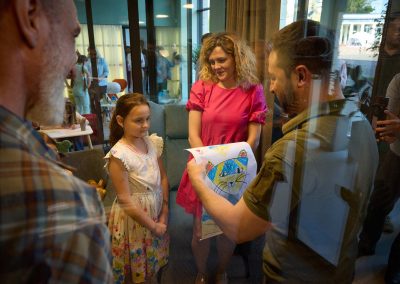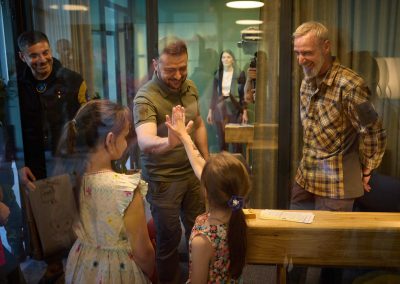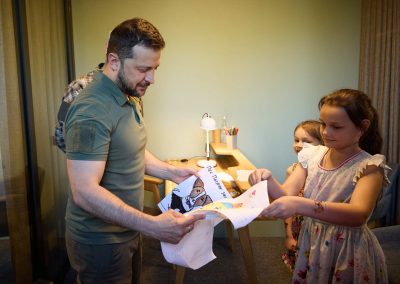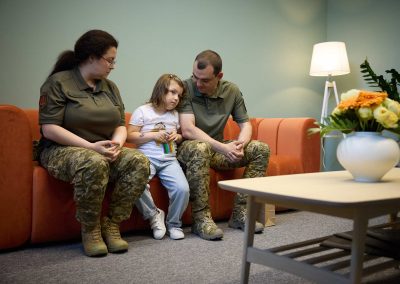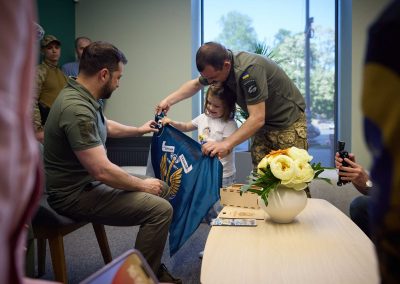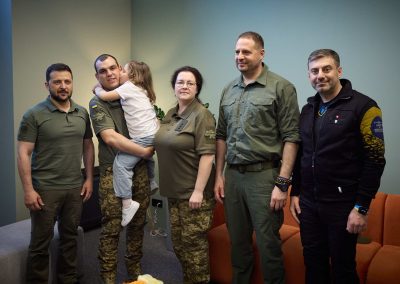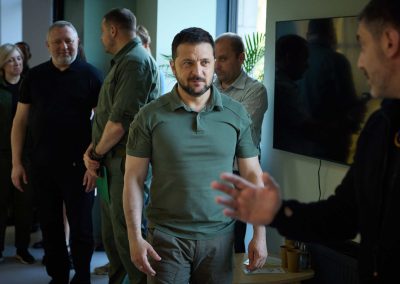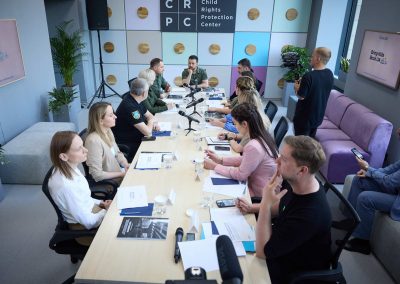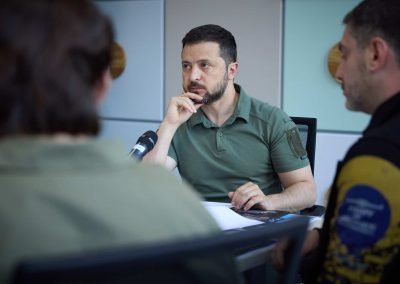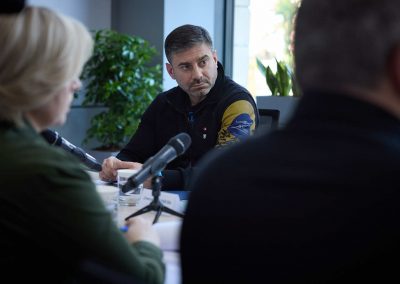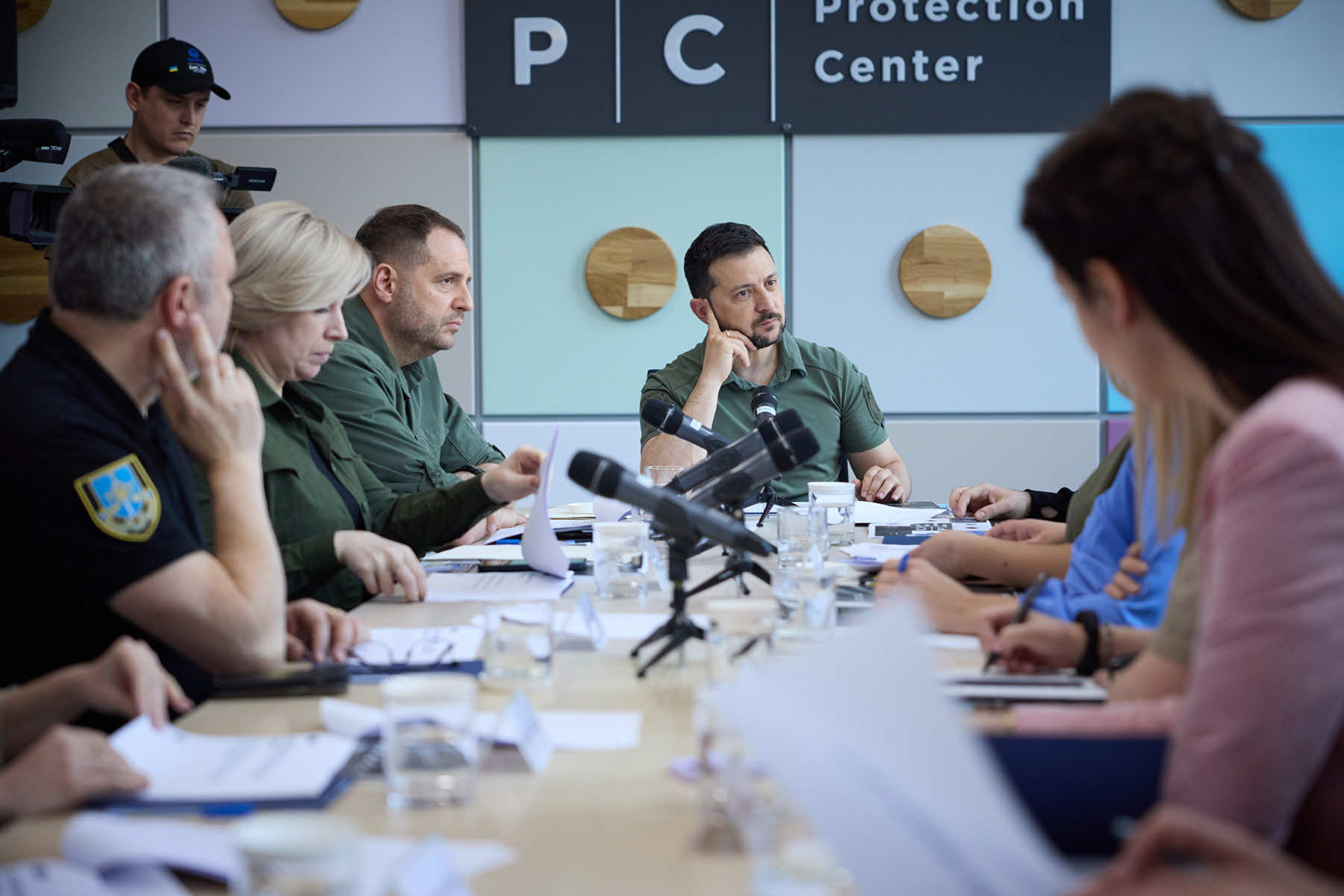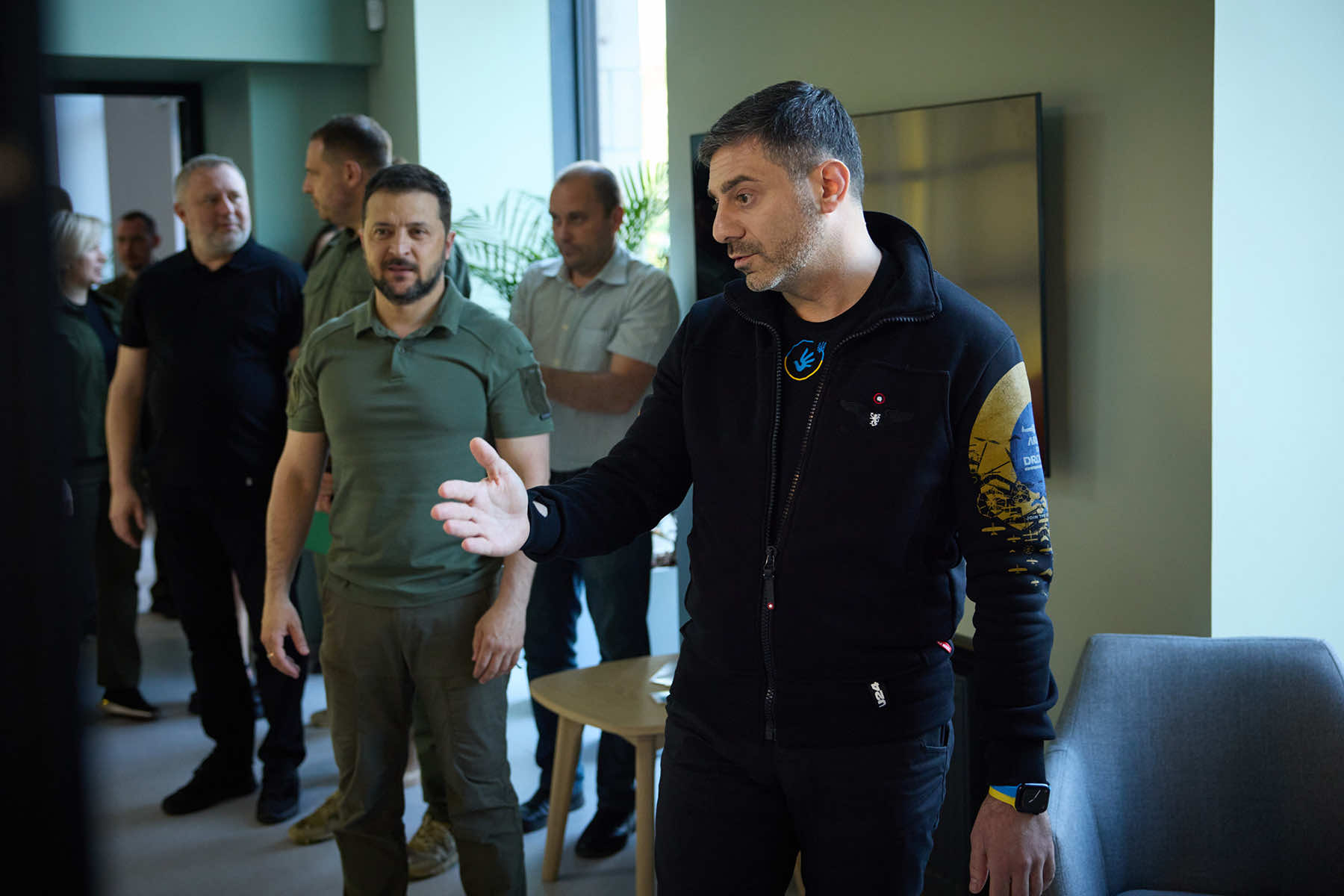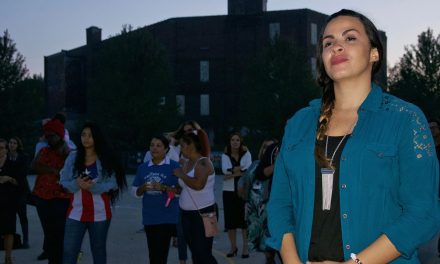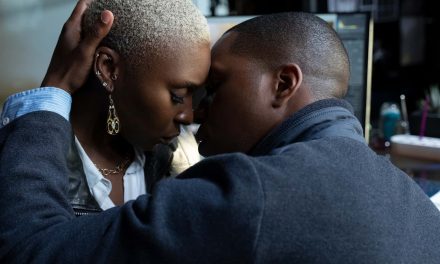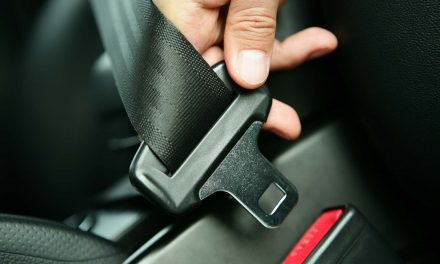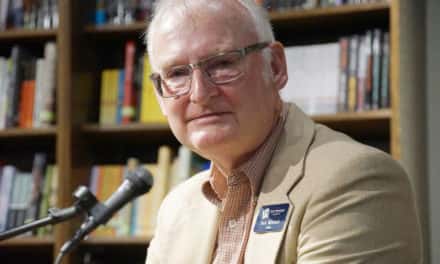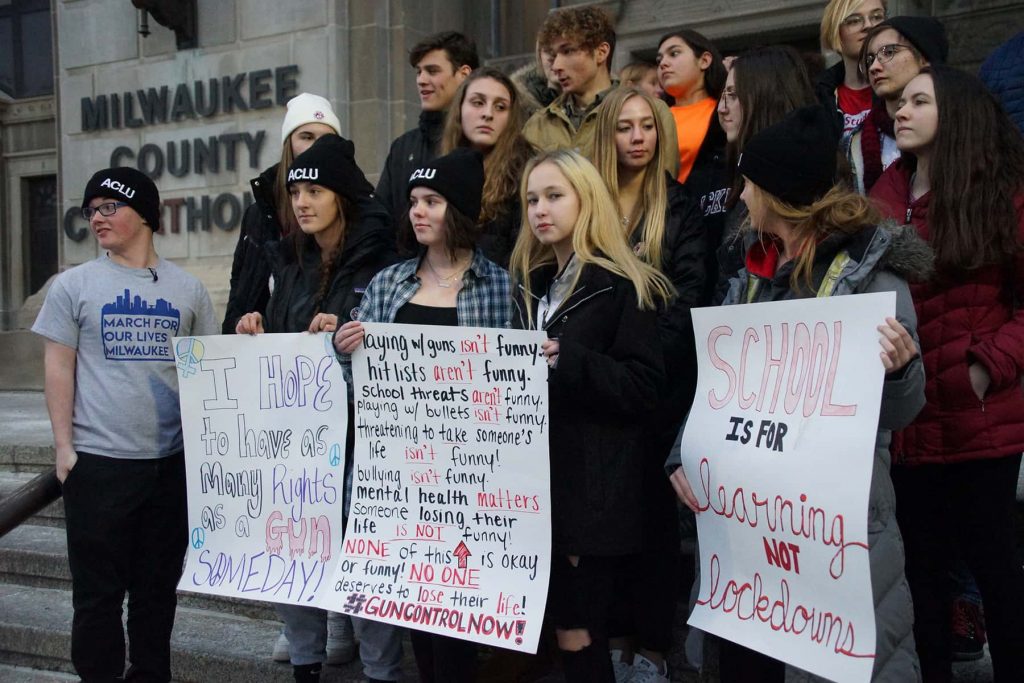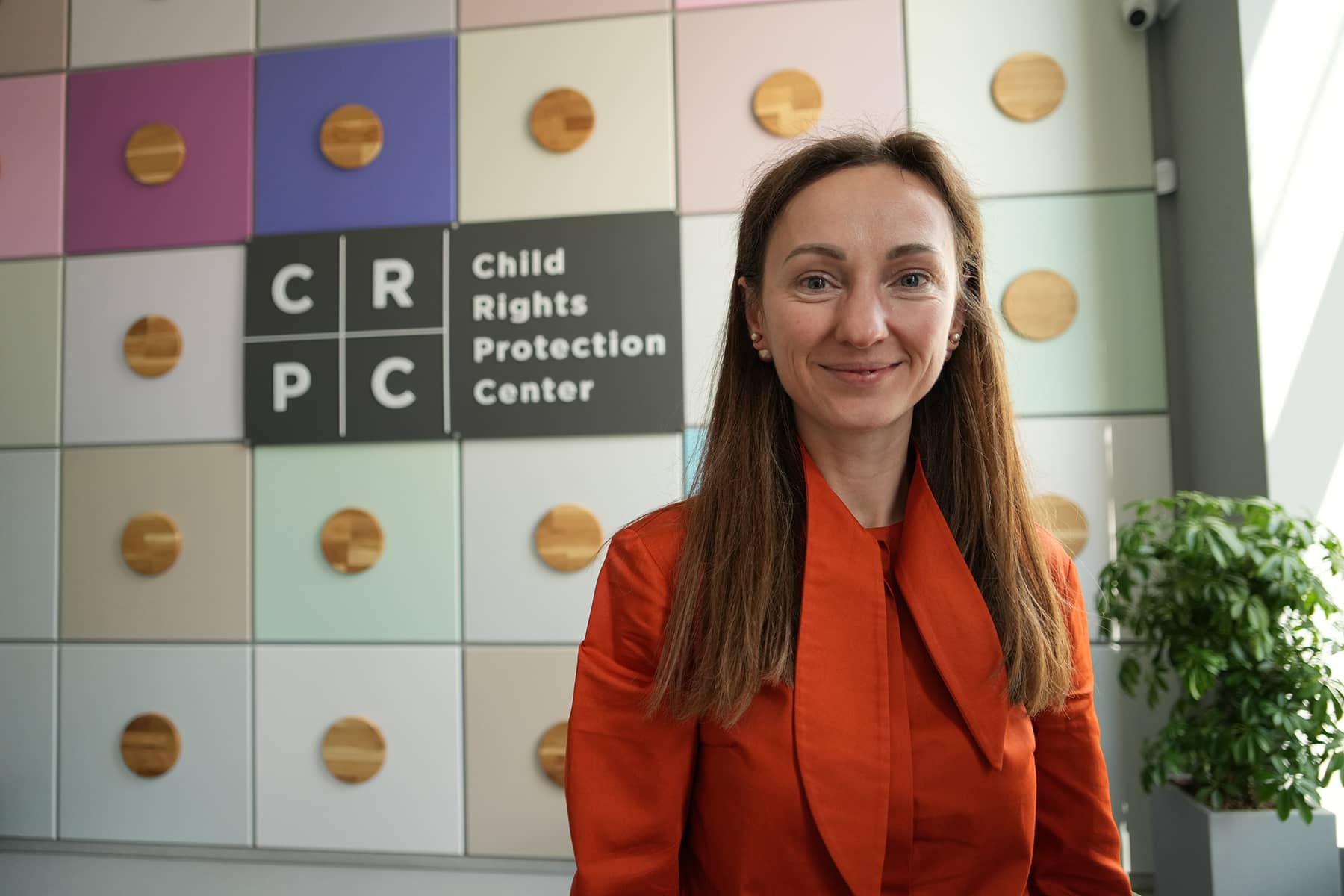
Under the direction of Ukraine’s President Volodymyr Zelenskyy, the Center for the Protection of Children’s Rights (CRPC) was created to document Russia’s crimes against Ukrainian children and to rescue those victims.
In May, Iryna Suslova was appointed by the Ombudsman of Ukraine as the Representative for the Rights of Children, Families, Youth, and Sport. She serves under Dmytro Lubinets, Ukraine’s Human Rights Commissioner.
While Milwaukee Independent was reporting from CRPC in June, several kidnapped Ukrainian children were rescued from Russia, and provided testimony to war crimes under heavy security at the location. It later made international headlines.
That development offered an eyewitness account of what it meant when Suslova’s hard work brought the successful return of a son or daughter. The mother of a young son herself, she has worked tirelessly to help the mothers and children of Ukraine. For Suslova, she is just following the example set by her own father.
Q&A with Iryna Suslova
Milwaukee Independent: What was your happiest childhood memory growing up in Zhytomyr? And, who has been the most influential person in your life?
Iryna Suslova: It might be my favorite question because to give you an answer, surely, I should talk about my dad. Thanks to his courage, resilience, dedication, faith in himself, in life, and in people, I have become the person that I am today. He has made me a person who cannot pass by and ignore the grief of someone else.
One day when I was just a year old, my father lost his vision and from that time he could not see anything. So, I remember some of those moments from my life. When I was a little girl, about 4-years-old, I could not even read any numbers or letters, but I helped him as a guide in the city.
He taught me how to be polite and help people. I remember one story, that is always on my mind. Once we walked near the church. There had been one old woman standing nearby who cried for help. My father asked me: “Is someone there?” Then I answered: “Yes, over there is a granny and she is asking for charity.” After that, he told me to ask her what kind of help she was in need of. I told him that I was not comfortable talking to her, and maybe she did not need any help from us. Then he answered me: “If you do not ask, you will never know if someone is in need.”
From that period of time, it became the fundamental principle by which I live my life. I do not have the opportunity to ask everyone personally what they need. But nowadays we have social networks, and people can post when they need help. And when we ask if someone is in need, or hear about a situation, we have more opportunities today to help them thanks. This ability is thanks to our partners and friends all over the world. So yes, my father remains the biggest influencer of my life.
Milwaukee Independent: How has Russia’s full-scale invasion affected you personally?
Iryna Suslova: I never imagined that I, personally, along with all women around me could be so strong. We have shown ourselves to have this ability after the full-scale invasion started. In Ukraine we have a joke: “If an ordinary citizen could buy anti-aircraft artillery, he has already bought it! If an ordinary citizen could buy an F-16, he would have done it! We have realized for ourselves, as a nation, and for myself personally, that there is nothing unreal that we cannot do. All that we need is the willingness and best intentions.
Milwaukee Independent: What has been the hardest part of your professional work since February 24, 2022?
Iryna Suslova: I think the most difficult decision that I have made for my life was to stay in Ukraine with a little 3-month-old child, and not go to someplace safer. There was a really big struggle inside me, but I could not let myself leave Ukraine. I felt that I should stay here in my homeland. It was a little easier after making the decision, because I found good partners and friends. They provided the necessary support for me to help others in need.
From the start we had challenges every day, such as finding a warehouse, setting up our logistics, trying to provide humanitarian assistance to people who were in occupied territory of Ukraine after February 24, 2022. And we needed to stay in touch 24/7, because we assisted in the evacuation of civilians from Mariupol and from other “hot spots” in Ukraine. And we used to provide and deliver humanitarian aid to occupied Chernihiv on boats. We also provided assistance with children’s meals, as a way to offer financially struggling parents a way to support their family.
Every time when I went to sleep with my son, I understood that my child wasn’t hungry. But somewhere was a child that was in need and I should help. It was very difficult for me to go through that emotionally. So, I cannot remember the hard times or easy times because every different period of war had its own challenges.
Every time when we saw how our cities were ruined after another suicide missile attack, was it easy for me? Certainly, not! But I understood that I was in a position to provide support for citizens who have been affected by the war in those cities. Most often I felt helpless, like when we saw not only Ukrainian military troops but also the children and civilians in the Mariupol’s Azovstal Iron and Steel Works plant. We could not do anything to assist, except to hold a press conference that would be seen all over the world.
I was involved with the coordination of evacuating citizens from Mariupol. Those people tried to escape to save their lives without any “green corridors,” roads guaranteed to be safe. They had to navigate through mined fields, not knowing if they would reach their final destination. And I had to help establish the logistics required to deliver humanitarian aid to the occupied territory within the Zaporizhzhia region. We tried to provide for basic needs, like providing children with meals. But Russian military troops continued to hijack the delivery of supplies from the road.
Was it all easy? Absolutely not! It was really tough, and the hardest work I have needed to do. But I had no other choice? So many people needed help. Like when I get a message from a parent with a child who had a genetic disease, like SMA (spinal muscular atrophy) or cancer. I could not say no, because I knew that a “no” meant the death of a child.
That is the way things have been going during the war, all over Ukraine. I cannot view past periods as being good days or bad days, because each and every day has been a challenge. The only question I ask is how much energy do I have inside to continue helping? How can I make a difference under the shifting conditions of war?
Milwaukee Independent: In the past year, what have you learned about yourself that has been a surprise?
Iryna Suslova: I had to face my inner challenge, of the need to communicate using the English language. So many of our important contacts were outside Ukraine. I understood that my level of English was low for a conversation level. I did not how it happened, even for me it was a big surprise, but I found a little free time in the middle of the night for two hours to practice every day. Now I spend an hour learning English online. I have tried to do my best to learn, and not take time away from responsibilities to my baby and my work. So around 10:00 pm is the most appropriate time for me to study English. The more I can lower the language barriers, the more I can accomplish for the families of Ukraine.
Milwaukee Independent: How did you join the Child Rights Protection Center, and can you explain a little about the work you do?
Iryna Suslova: The Child Rights Protection Center (CRPC) was established at the initiative of President of Ukraine Volodymyr Zelenskyy, The decision to establish it was made at the Coordination Council for Child Protection and Safety, chaired by the Head of the Office of the President of Ukraine and Chairman of the Coordination Council Andriy Yermak.
As you know, all diplomatic ties between Ukraine and the Russian Federation have been terminated, Therefore, the Commissioner has remained the only bridge – the only official with access to communicate with the Russian side on humanitarian issues. It has been thanks to this channel that we have the opportunity today to work for the return of Ukrainian children to their families and homes in Ukraine. So many have been deported or forcibly transferred from the temporarily occupied territories of Ukraine to Russia.
That is why CRPC was established, on the basis of the Office of the Ukrainian Parliament Commissioner for Human Rights. I am the Representative of the Commissioner for the Rights of Children, appointed on May 5, 2023. CRPC is part of the Department for the Protection of Children’s Rights for the Ombudsman of Ukraine.
The main functions of CRPC are to provide public services and record all war crimes committed against our children by high-ranking officials and military personnel of the Russian Federation in the territory not controlled by Ukraine or in the territory of Russia, as well as to restore the rights of victims.
The key task we faced in establishing CRPC, which has been attended by all representatives of state authorities, was to ensure the provision of a range of social services, including a full medical examination, logistics, temporary housing, and social and psychological rehabilitation of children and their family members.
Another important aspect of our work at CRPC is to ensure that war crimes committed against Ukrainian children are recorded. The appropriate conditions have been created to ensure that law enforcement officials do not have to interview a child multiple times, which would entail the risk of causing additional psychological trauma to the child. Therefore, at CRPC a child is interviewed only once, jointly with the Security Service of Ukraine and the Office of the Prosecutor General. Communication with children takes place with the direct participation of psychologists, which is vital, especially given the need to work with young children.
The fact is that the children have already suffered psychological trauma, and since we do not want to aggravate it, we decided that the debriefings can be conducted only once. Therefore, at all stages of the interview of a child, video and audio recordings are made.
These materials are then forwarded to the courts of the national jurisdiction or the International Criminal Court, in cases where international humanitarian law has been violated; the child was illegally and forcibly transferred from the temporarily occupied territories to Russia; children have suffered as a result of hostilities; the child was subjected to physical violence (torture) by a serviceman of the Russian Federation; and the child was taken away from the foster family by Russian military personnel.
I would like to talk about the number of deported Ukrainian children, because the scope of the problem is important to understand. According to the National Information Bureau, the number of deported and/or forcibly transferred children is currently more than 19,000. The lists of these children are constantly being verified and updated by law enforcement agencies. As of July 12, 383 children have been returned.
As previously mentioned, the Ukrainian Parliament Commissioner for Human Rights is constantly trying to use his mandate to communicate and transfer lists of children to the Russian side with a request, and demand, to return all deported Ukrainian children – including those who were in institutional care and were forcibly deported. According to our information that consists of more than 3,500 children.
Unfortunately, the Russian Federation has repeatedly ignored these lists and made arguments to deny that they have all these children. Their actions prove that they have no desire to confirm our children were stolen and ensure their return to Ukraine. However, we continue to do our work. Children may only be returning in small groups, but they are returning. Each returned child is important to us. Each returned child is more precious than gold.
Milwaukee Independent: On June 28, five rescued Ukrainian children were brought to the Child Rights Protection Center. Can you explain about that situation: what they went through, why they were there, and where they went after?
Iryna Suslova: At the end of June 2023, Ukraine managed to return five institutionalized Ukrainian children from deportation. These were children who were previously brought up in family-based care and boarding schools. Four girls were from the temporarily occupied Kherson region. A 16-year-old boy was abducted by armed Russian servicemen from his home in the Kharkiv region, in front of his foster parents, and transported to the Russian Federation.
The girls were under occupation for about 18 months, and their mother received threats of losing her children because she did not want to receive a Russian passport and other Russian-issued documents.
The story of Serhiy is even more shocking. The 16-year-old tried to leave the Russian Federation on his own three times, and three times he was brought back by Russian border guards. They pressured and intimidated him even more each time.
Serhiy was subjected to abusive treatment and stripped during interrogations. They insisted that he accepted Russian citizenship and studied in Russian educational institutions. They put constant pressure on the young man and subjected him to ideological training.
Through the combined efforts of NGOs and state agencies, 10 months after he was deported Serhiy arrived in Kyiv. It took several days for the state to process him. The Child Rights Protection Center then interviewed him and the other children who witnessed the deportation. Law enforcement agencies recorded their testimony according to the Barnahus standards. The children were medically examined and then reunited with their parents and caregivers.
The documentation of Serhiy’s case will serve as proof that Russia has committed the crime of forced deportation. Not only for Ukraine’s national system, but also for the International Criminal Court, where materials are currently being prepared.
In total there are more than 4,000 institutionalized children in the Russian Federation, and it is the responsibility of the Ukrainian state to return them all. We need international support to accomplish this massive task.
Milwaukee Independent: What do you want the international community to remember about your work? And how can they help?
Iryna Suslova: International law is the basis of the world order and is necessary for the survival of human society. The use of force and the justice of law are completely opposite things. The power of law is a tool that maintains balance in the world. We have seen from history, and the actions that Russia is repeating today, that when brute force dominates over justice, the whole world burns.
Day after day, civilians in Ukraine face random missile attacks. The cruel and sadistic invader strikes at us in the middle of the night while families sleep. A map online of Ukraine quickly appears bruised, as clear areas turn into red splotches that show what areas are under an air raid warning. Ukrainians are forced to sit in their basements or find refuge in bomb shelters. They do not know whether they will see the next morning. They wait in fear if they can survive the danger and live for another day.
The people of Ukraine demand that the Russian Federation respect international law, regarding our sovereignty. We demand an end to the war crimes they are committing against us each day. The full-scale invasion is an act of genocide against the Ukrainian people!
We appeal to our international partners on behalf of the Ukrainian people to support Ukraine’s Peace Formula. It provides for the settlement of the armed conflict in Ukraine on the basis of international law, as well as placing responsibility for those who gave criminal orders – those who killed our citizens.
Since the violations of children’s rights, in the context of the armed conflict by the Russian Federation against Ukraine, have not stopped, we also ask all partner countries and international organizations to increase legal pressure on the Russian Federation to immediately stop genocidal practices, forced deportations, and assist in the return of all Ukrainian children – including those who have lived in the occupied territories since 2014.
We need the assistance of all international partners in the creation of an effective platform that would facilitate the search, identification, verification, and return of these deported Ukrainian children to Ukraine.
We need international involvement and cooperation in the search and identification of the location of Ukrainian children in the territories of the Russian Federation, in order to return them to Ukraine. We need to increase international political pressure on the Russian Federation to stop committing war crimes in Ukraine and actions that violate international law.
I strongly believe that Ukraine will win this war, because we – Ukrainians – will defend it and help each other. Not as much as we can, but as much as will be necessary. We are a united nation, a great nation, and a free people.
Milwaukee Independent: Why do you record messages while you are driving and post them on social media? What has been the feedback to these podcasts?
Iryna Suslova: Nowadays I am recording fewer videos and audio to post on social media than before. The main reason is that I do not have any free time for it. Currently, I only have free time when I travel to work or when I travel home from work. That’s the extent of my free time. When I go home from work, I am so exhausted. I used to make recordings while I traveled at the end of my day. But for even that 20 minutes on the road I have needed to save my limited time for my little son, because I am also a mother.
For my trip to work, I need that 20 minutes to call and talk with my parents. After that, I need to prepare myself mentally for the challenges that are waiting for me when I arrive at CRPC. So I have less opportunities even during my commutes to record my messages.
One of the video podcasts we’re talking about was regarding bomb shelters in Ukrainian schools. I had asked my audience if they had bomb shelters at the schools. I got more than 40,000 answers from parents of Ukrainian children from all over the country. People told me about bomb shelters in schools and children’s gardens, also the challenges of safety that they have when conducting offline education.
So I want to express my thanks to all the people who follow me on social media and read the news that I post. I am also grateful to everyone who has the opportunity and influence to share the situation in Ukraine with the world.
Series: Return to Ukraine
- Return to Ukraine: A trauma loop of travel from Milwaukee to a country still at war a year later
- From Weddings to War: How Kostiantyn and Vlada Liberov photograph Ukraine's daily horrors
- Being Friends of Angels: The Milwaukee nonprofit saving lives and offering hope in Ukraine
- Mayors of Milwaukee and Irpin expand Sister City cooperation after visit by nonprofit delegation
- Interview with Tom Barrett: U.S. Ambassador to Luxembourg reflects on forging ties with Irpin
- Wisconsin Ukrainians host annual fundraising picnic to support homeland on 500th day of war
- Advanced Wireless to donate 840 access points to rebuild Irpin's citywide Wi-Fi network
- Children of Irpin begin planning mural for Mitchell Airport to showcase Sister City friendship
- Irpin is not forgotten: Residents thank Milwaukee Independent for reporting on their "Hero City"
- Milwaukee photojournalist on assignment in Kyiv during July 2 Russian drone strike targeting civilians
- Russian cruise missile attack kills residents far from front lines in Western Ukraine city of Lviv
- Ukraine arrests man accused of directing Russian ballistic missile strike on Kramatorsk pizza parlor
- Milwaukee offers Ukrainian refugee family life-saving treatment for son's genetic condition
- Nikita Pirnach: Irpin student hopes to help his country after finishing education in Milwaukee
- Sick children wait for overseas medical treatments as a new generation is born in Ukraine during war
- Iryna Suslova: The superwoman saving Ukrainian children abducted by Russia
- How a group of Ukrainian mothers, wives, and daughters are distributing vital humanitarian aid
- Freeing Freddie: Educational program aims to reduce PTSD for Ukraine's war-weary children
- The trauma of living: When being killed is the preferred choice to being disfigured from battle
- President Zelenskyy offers gratitude and awards to wounded soldiers while visiting Lviv Hospital
- Former Vice President Mike Pence visits Irpin during unannounced campaign trip to Kyiv
- Military Hospitals provide vital care for Ukrainian soldiers in need of hope and healing
- Combat surgeons pioneer advances in maxillofacial reconstruction of Ukraine's injured heroes
- Milwaukee donors cover cost of reconstructive surgery for American volunteer wounded in battle
- In their own words: Listening to the Voices of Children talk about their experiences from war
- Traumatized by War: Children of Ukraine carry on after losing parents, homes, and innocence
- Widespread Torture: U.N. report documents Russia's systematic executions of Ukrainian civilians
- Wisconsin volunteers sort and pack donated medical supplies for use in Ukraine's hospitals
- Lviv warehouse serves as vital link in medical supply chain from Milwaukee to frontlines
- Aid from Milwaukee is providing internally displaced people in Ukraine with food and clothing
- Iryna Pletnyova: How the city of Uman transformed into a hub for refugees fleeing war
- Bombs in the night: Why children in Uman are still traumatized by Russia's missile attack
- School Bunkers: When a national flag becomes a memorial to dead Ukrainian students
- Hasidic life in Uman: A journey across Ukraine to the Tomb of Rabbi Nachman of Breslov
- Tetiana Storozhko: Being a witness to the history of Roma culture in Ukraine
- Remembering Oskar Schindler: A photojournalist’s diary from the streets of Jewish Kraków
Denis Soloviov
Lee Matz
Presidential Office of Ukraine
Milwaukee Independent has reported on Russia’s brutal full-scale invasion of Ukraine since it began on February 24, 2022. In May of 2022, Milwaukee Independent was the first news organization from Wisconsin to report from Milwaukee’s Sister City of Irpin after its liberation. That work has since been recognized with several awards for journalistic excellence. Between late June and early July of 2023, Milwaukee Independent staff returned to Ukraine for a second assignment to report on war after almost a year. The editorial team was embedded with a Milwaukee-based nonprofit, Friends of Be an Angel, on a humanitarian aid mission across Ukraine. For several weeks, Milwaukee Independent documented the delivery of medical supplies to military and civilian hospitals, and was a witness to historic events of the war as they unfolded.
Return to Ukraine: Reports about a humanitarian mission from Milwaukee after a year of war

